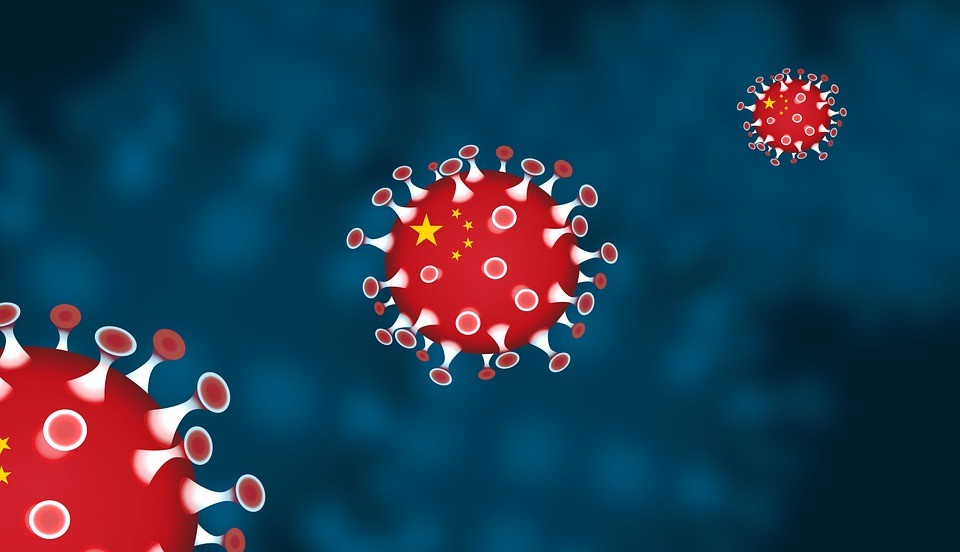As increasing numbers of epidemiologists and journalists highlight how the UK government consistently missed opportunities to tackle the spread of the new Coronavirus and the respiratory disease it causes (COVID-19), questions about the role of language and narrativisation have yet to be asked. Dr Joseph Ford discusses some of them.

Pressure on governments to tackle the fallout from the spread of COVID-19 across the world has been intense, but scrutiny of the initial actions taken by UK and US governments has been particularly probing in recent days. However, while public health experts like Helen Ward have criticised politicians who ‘refused to listen’ to scientific advice, they stop short of asking why politicians like Boris Johnson and Donald Trump ignored the advice of the World Health Organisation (WHO) and failed to follow the lead of countries such as China, Taiwan or South Korea (all of whom have managed to successfully suppress the virus with extensive testing and contact tracing measures).
To ask why countries like the UK and the US took so much longer to learn from the worrying signs coming out of China, or to listen more quickly to the advice of the WHO of course means asking difficult questions about the actions of the Chinese government and of international bodies such as the WHO. China is widely reported to have suppressed news of the detection of the virus, while the WHO ignored early warning signs from Taiwan back in December, because the UN does not recognise the country as a sovereign state.[1] But to watch politicians such as Trump incite racism and xenophobia, labelling the new Coronavirus a ‘Chinese virus’, or Johnson smirk at the idea that many in the UK were not following social distancing advice – and this, after having spent weeks ignoring warnings from the WHO and other countries experiencing the virus – demonstrates a sense of Western exceptionalism and scientific superiority that, as we are now learning, would never keep the virus at bay.

In France, meanwhile, racist narratives of colonial science have been shown to be alive and well, as two French scientists openly discussed the possibility of testing a Coronavirus vaccine in Africa, in order to verify its effectiveness on a population apparently already more vulnerable to the virus. The 1920s saw large-scale vaccination campaigns against sleeping sickness in Cameroon, the Central African Republic and the French Congo, when a handful of needles where used to immunise thousands of people. And, while these two scientists mention the testing of vaccines to control the HIV-AIDS epidemic, they are ignorant of claims that it was precisely the actions of Western virologists in Africa that led to the release of the HIV virus on the continent.[2]
There is a certain irony to both Johnson’s familiar smirk and the French scientists’ suggestion. In her article for the Guardian, Ward notes that it was precisely during those two wasted weeks before Johnson introduced a full UK lockdown that the prime minister was most likely to have contracted the virus, which led to his own hospitalisation and admission to intensive care. Meanwhile, African nations have shown superior levels of preparedness for the ongoing outbreak, and many nations have been aware of the importance of early testing and contact tracing. Three weeks into the lockdown in Rwanda, 110 confirmed cases of COVID-19 had been confirmed, while no deaths have been recorded yet. Compare that to more than 100,000 confirmed cases and 10,000 deaths in France, which after accounting for different population sizes is nearly two-hundred-times the Rwandan figures at the equivalent stage of the lockdown. Of course, this could all change, but African nations have not made the same mistakes that Europe and the US made in the early days of the crisis.
Amid these ironies and the actual science, there are fundamental questions to be asked about the capacity of Europe and the US to think critically about their initial responses to the spread of the virus in the rest of the world, and crucially about the way the West has narrativised the Coronavirus as ‘coming from’ the East. The virus has been clearly linked to regions of the world that the Global North considers ‘dirty’ or ‘unhygienic’, revealing racist tropes that are embedded in our language. The naming of previous respiratory viruses such as MERS (Middle East Respiratory Syndrome) by geographical location undoubtedly contributes to this problem.
In departments of languages and cultures across the UK, we have been at constant pains to stress that a languages education goes way beyond the skill of learning a language. To quote Julian Barnes, to understand another language ‘is to understand those who speak it.’[3] But language learning is not simply about common understanding of existing languages or cultures, it is also, as Alison Phipps writes in her book on the decolonial practice of language learning, about ‘changing human relationships of power around speech and language’ (2019: 26). This means acknowledging that at the heart of our encounters with other languages and cultures is a relation of power – and frequently an imbalance of power that privileges one speaker over the other.
These are precisely questions we have begun asking here at the Institute of Modern Languages Research (IMLR). Together with colleagues across the UK and the US, I and Emanuelle Santos from the University of Birmingham had organised a two-day symposium in March, which promised wide-ranging discussions about how imperial and colonial forms of knowledge-making impact on the teaching of languages. Yet, at the core of this project is also a question about how language learning is uniquely placed to encourage critical and self-reflexive understandings of the histories of power that configure and construct the ‘knowledge’ upon which our contemporary politics, society and science are founded.
Contained within the pages of Phipps’ recent book is the insight of the Cameroonian philosopher Achille Mbembe, who, some twenty years ago, wrote how ‘the experience of the Other […] has almost always posed virtually insurmountable difficulties to the Western philosophical and political tradition’ (cited in Phipps 2019: 43). It is often remarked that politicians like Boris Johnson possess superior cultural knowledge of the world, of ‘the Other’, through speaking languages (he apparently speaks French and Italian fluently and knows Latin). However, we must learn to understand that we cannot simply ‘know’ the world through learning dominant Western European languages, but must instead learn the redeeming powers of everyday encounters with languages and cultures we do not, and perhaps cannot fully ‘know’.
Indeed, we are learning about the virus and its impact on our bodies and our thinking every day. But it is vital to acknowledge that the virus was, and to a large extent still is, a scientific unknown. Scientists have very quickly gathered and accrued data and subsequently published knowledge about the virus and its effects, but this process of creating knowledge comes after an initial encounter with the unknown. The lesson from languages is that we are ‘encountering’ this virus as an unknown ‘Other’ and it is precisely this ‘encounter’ for which we were (and remain) unprepared. While there is little doubt that the demands of maintaining the liberal economic order have played a role the UK and US governments’ reluctance to enforce and maintain lockdowns, presumptions around superior science, or the specifically Western pre-eminence in acquiring data and synthesising ‘knowledge’, reveal the imperialist thinking at the heart of the Western political unconscious.
The Coronavirus has caught scientists off guard, as they rush to write new science, but decolonial perspectives grasped through linguistic and intercultural encounters, allow us to see the dangers of assuming our ‘knowledge’ or ‘science’ is superior to that of the Global East or South. Data does not exist in a vacuum, but circulates in a cultural ecosystem carried by languages. As the UK and the US look likely to be two of the worst-affected countries in this Coronavirus pandemic, it is vital that we examine how narratives of Western and European exceptionalism in the minds of politicians and scientists have led to the dither and delay that has already claimed so many lives, and will needlessly claim many more.
Dr Joseph Ford, ECR French Studies, IMLR
For a preview of the forthcoming symposium, ‘Decolonising Modern Languages: A symposium for Sharing Ideas and Practices’ (final dates TBC), see here.
[1] The reason Taiwan responded so quickly to the spread of the virus was because of their shared language with China and the fact that several Taiwanese citizens in Wuhan raised the alarm. Thanks to Thom Abbott for pointing this out to me.
[2] Thanks to Sarah Arens for highlighting these claims.
[3] This is taken from Charles Forsdick’s Twitter feed.
